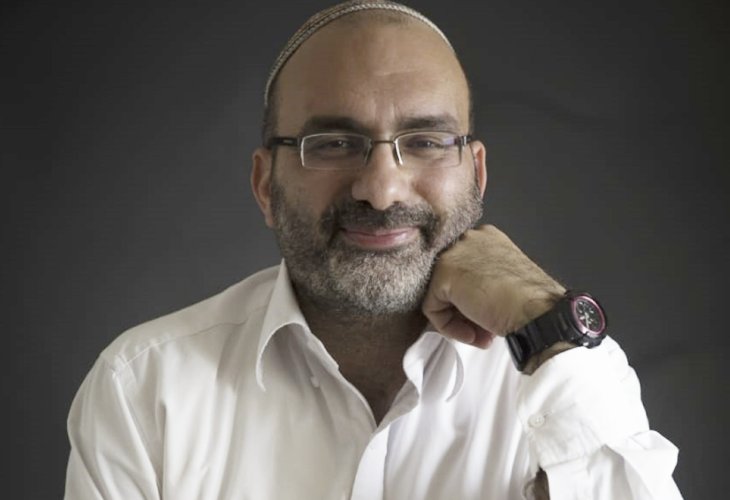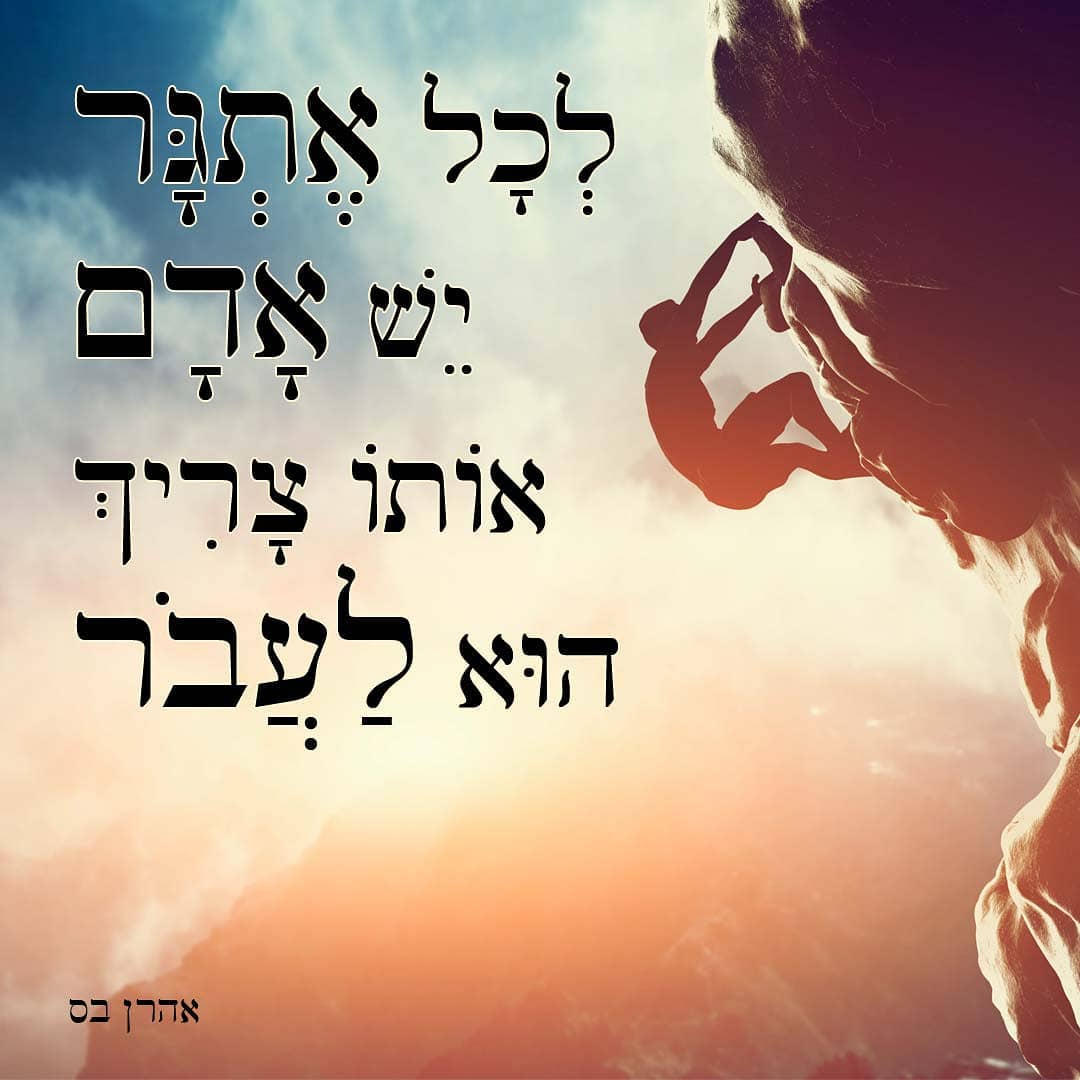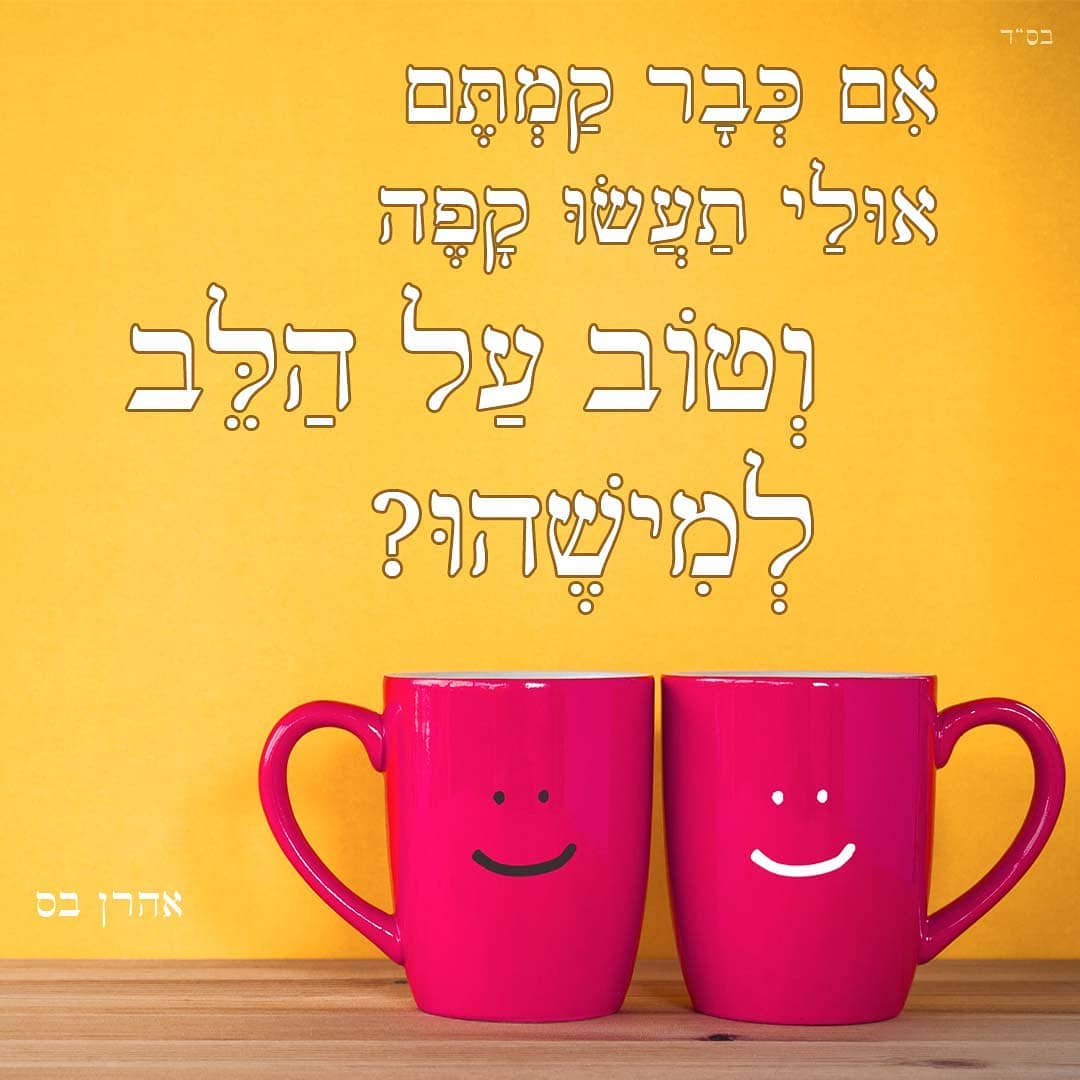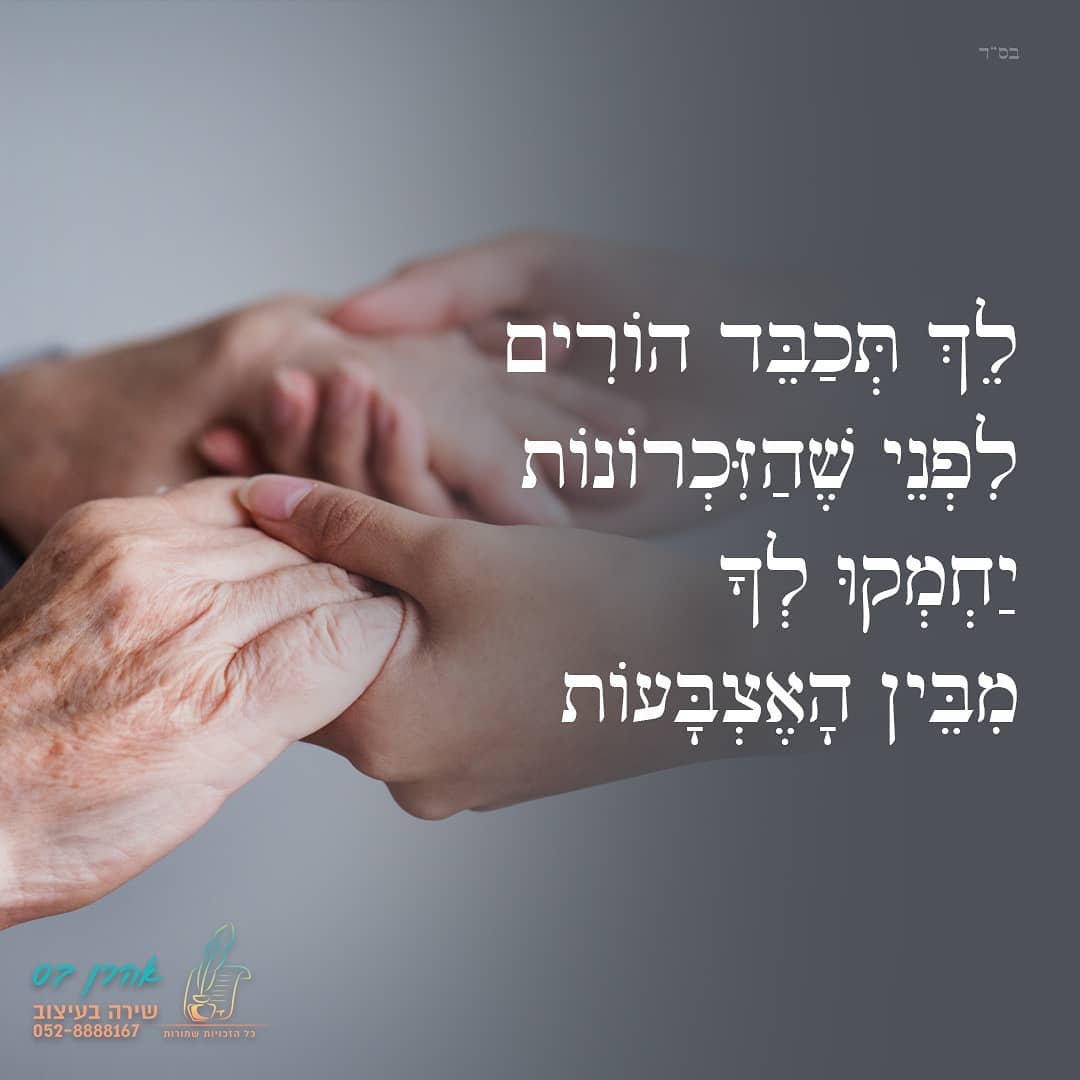Aharon Bas: "I Concluded That If There's Nothing, Why Bother?"
From a religious family and a yeshiva education, he almost left it all behind until a young rabbi rekindled his love for Torah. Roni Bar Sinai, better known as Aharon Bas, captivates thousands with his poetry, inspired by sacred texts to showcase the world's goodness.
- שירי פריאנט
- פורסם י"ט סיון התש"פ
 Aharon Bas
Aharon Bas #VALUE!
![]()
![]()
![]()
Roni Bar Sinai, more commonly known as 'Aharon Bas,' shies away from being called a poet. He believes the title is reserved for those greater than him. Yet, no matter how you label it, his hundreds of poems are faithfully read by thousands of followers on social media, who resonate, respond, and share his work.
Bar Sinai, a father of six, never forgets to thank Hashem for his talent. "I can't take credit for it," he says, "It's like being proud of having blue eyes. It's not from me. The talent is from Him, the pride is in people choosing to read and share."
Bar Sinai grew up in Kiryat and moved several times before settling with his wife in northern Acre. Raised in a religious family—or as he calls it, "religious by inertia" (principle of persistence).
What do you mean?
"Many families came to Israel as religious families but weakened over time. I'm not sure if that happened with us, but I remember having many questions without answers while growing up. I studied in a yeshiva high school and for a long period thought I would leave it all behind. I wished to become secular, but then I met someone who changed my mind, and from there the story unfolded."
"The highest souls
dwell within
a broken body"
Aharon Bas
Bar Sinai's roots are Eastern. His father was born in India and his mother in Israel a year after her family immigrated from there. "My roots are mainly from Iraq. There was a large Jewish migration from Baghdad. Some went to India and some to England. My father lived in England, where I was born, but the home influence was Indian and Iraqi. Much of my current cultural experience is heavily influenced by the Ben Ish Chai, who himself was Iraqi."
At age 16, Bar Sinai began exploring various philosophies, like Eastern teachings and Buddhism, leading to endless study of Torah's inner dimensions. "I asked myself many questions and concluded that if nothing exists, why strive at all? I had faith, and Hashem was a significant part of the family, mostly on Shabbat and holidays. My family is now much more strengthened, but there was a long period where this was our reality. I don't blame anyone, that's just how it was. I think they lacked the tools to answer the secular questions like 'Why observe Shabbat' or 'Why not turn on lights.' Eventually, the reinforcement came from within me, and I started making changes in how I thought and what I introduced at home."
Bar Sinai was quite far from beginning his adult life as a man of Torah and mitzvot. He planned to enlist in the military and leave it all behind. "One day I went to the yeshiva looking for a friend," he recalls. "I entered the beit midrash and saw a rabbi speaking about a pre-military preparatory program in Tzfat. He invited me to visit, but I told him, 'I'm planning to leave it all behind.' But he insisted, urging me to spend a week there just listening."
Did you go?
"I went there, during Shavuot. I remember the breathtaking view at the entrance of the preparatory school, offering a panorama of Tzfat. I stood there, enthralled by the scenery, knowing I would stay, regardless of the teachings. The view brought me there, but the rabbi made me stay. He connected Judaism to my life for the first time. Until then, Judaism was irrelevant to my life. Suddenly everything clicked."
What was his innovation for you?
"I realized that it didn't matter if I couldn't succeed immediately, the goal was having an objective. No rush, no threats, it was a significant change from what I'd heard before. He simply altered everything I knew."
"Your life's purpose
is not to find answers
but to find
the right questions
to the answers -
that are already
within you"
Aharon Bas
At the Tzfat preparatory program, Bar Sinai gradually built his religious strength. "There were various young people there, even those who had stopped believing. We all progressed together. That year shaped me in every way. I figured out how I want to perceive myself, the people around me, and how I wish to raise my children."
Were you already thinking about children? You were only 18
"From a very young age, I wanted to marry and start a family, although it happened only later. It might seem odd. My friends traveled abroad and I just longed to return to Tzfat."
During his military service, Bar Sinai continued visiting Tzfat on weekends. After his service, he rented an apartment in the Old City with five friends and kept strengthening his connection with the Ben Ish Chai, Rabbi Yosef Chaim of Baghdad, of blessed memory, who influences him to this day. "He had an incredible vision on life," he says. "Hard to believe that things he wrote 150 years ago are still relevant today. I became more religiously observant and understood how, as a religious person, to relate to my secular society."

What do you mean?
"Every religious person must comprehend how they relate to their society. What am I supposed to do, where do I stand regarding others, am I drawing near or moving further away. My approach changed, helping me see something remarkable in every Jew. To focus on their good points, as good and bad are matters of focus. Focus on good, and you'll see only good, and vice versa. That applies to ourselves as well. As I delved deeper, mainly with Ben Ish Chai and later in Hasidism, Rabbi Nachman of Breslav, Baal Shem Tov, and others, it altered my attitude towards humanity. 'Love your neighbor as yourself' means loving everyone, all of humanity."
In the beginning of his religious strengthening, Bar Sinai says he was very critical of others. "In the initial stages of strengthening, people tend to become extreme. There's an overpowering light and you just want to escape from where you were, so you start judging the world, wondering why they don't do what you do. I later learned it's fine. If I want to be more stringent, I'll do it with myself, not everyone else."
A man's strength
lies in the size of
his partner's smile
Aharon Bas
After some time in Tzfat, Bar Sinai returned to the Kiryat area and began working for a computer company. Then he decided to study economics and logistics at Bar-Ilan University and combine it with beit midrash learning. Around that time, he met his wife, and they got married.
Today, his poetry is devotedly read and shared by thousands, but Bar Sinai was initially afraid to publish his poems, worried that he'd be mocked. "I was an outcast as a kid, so I invested a lot of time in reading; it was my escape. There wasn't a wide variety of books back then, so I read encyclopedias, dictionaries, and, perhaps unknowingly, my vocabulary improved. I wrote prolifically until age 18, then went dormant for a while. Six years ago I decided to open a profile under the name Aharon Bas and release my poems anonymously."
How were the initial responses?
"Initially, I wrote to express great joy or immense sadness. During a period of crisis, I wrote to release everything. At some point, I noticed people were uplifted by a poem I'd written, so I decided to turn away from poems of pain and focus on joy, on the goodness in people. Many of my poems are based on ideas from Hasidism and Kabbalah, which resonates with my secular readers."

Did you expect the overwhelming positive reception of your poems?
"Absolutely not. I wrote poems for myself and to bring happiness to others. Initially, positive comments were important as they helped build my confidence. I didn't believe I was a good writer, and it took me a long time to come to terms with that. Only after three years did I start believing in my writing."
Don't reach
the end of your life
only to discover
you lived a life
meant for someone else
Aharon Bas
What about a book? Isn't that the next step?
"I really want to, but it's a significant financial investment. I considered a crowdfunding platform, but I'm apprehensive."
Afraid of what? You have readers who would gladly support your book
"I once wrote that my cage is made of fears. That's my cage. The things I am today are the result of battles I've faced. Do you know how long it took me to upload a profile picture for the first time? I received a gift, and I can't boast about it. All I can do is decide how to use it. I chose to write about good. The goodness in the world, in people. To help people step out for a moment and realize there's more to see."

What about the recent period, where division was prevalent in the country?
"It's very painful. There are so many sectors here and each has its strengths, but they all stumble on division. The sages clearly said that if the people of Israel are united, Satan cannot accuse them. Unity is worth more than anything. We belong to one root, even if we're different, and people forget that. Throughout history, whenever the people of Israel were united, amazing things happened."
So what's the solution?
"Someone once said you can't change the world, or your country, your town, or even your family. The only thing you can do is correct yourself, and from there, expand outward."

